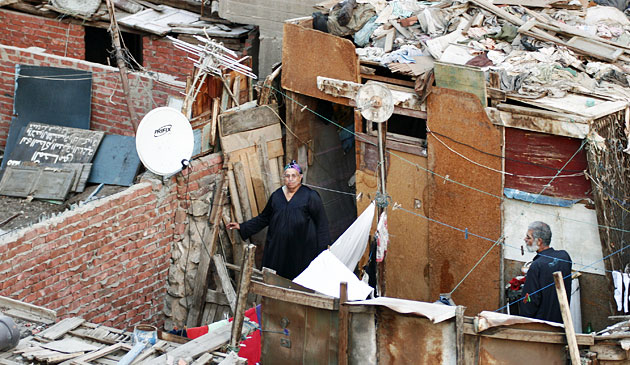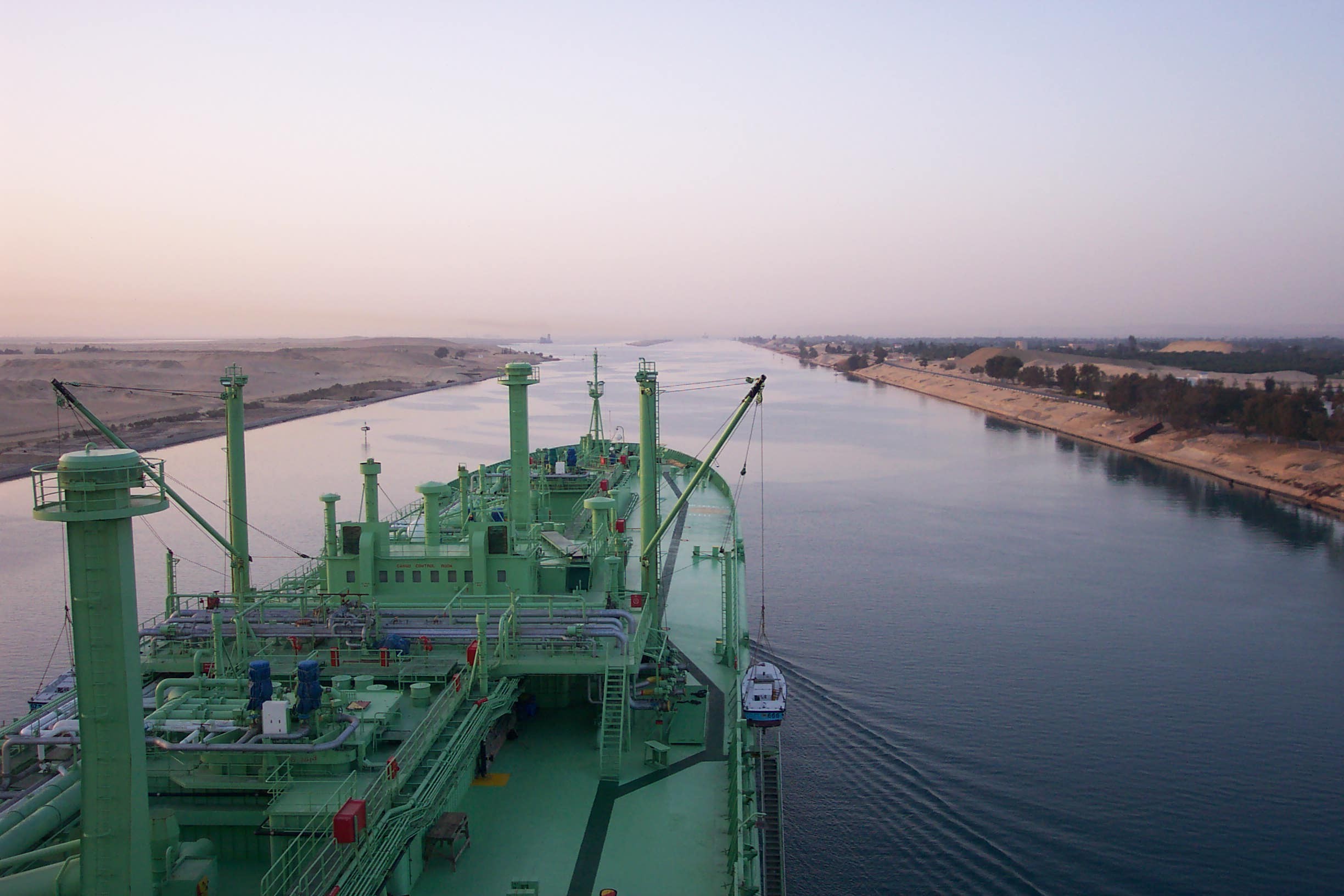With the Egyptian government implementing recent economic reforms, one has to wonder about the long-term economic impacts those reforms will have on our country. Mr. Rifaat, CEO of N-Gage Consultancy, explains to Egyptian Streets how his firm is the first local consulting firm in Egypt specialised in supporting business in the areas of Public Affairs Strategy and Government, and giving crucial advice on the economic outlook and future of Egypt.
What it is N-Gage?
N-GAGE Consulting is the first local consulting firm in Egypt specialized in supporting your business in the areas of Public Affairs Strategy and Government Relations. We help you devise and execute your government engagement strategy to protect your business and deliver your objectives.
Our scope of work covers a wide array of services ranging from the elaboration and execution of government engagement strategies, in depth stakeholders mapping, as well as walking our partners through the procedural steps with the government entities to finalise their business objectives by providing advice on the right key stakeholders as well as the most relevant and impactful government communication strategies.
We also propose ad hoc project based solutions, and generic sector specific strategies to drive legislative changes conducive to easier and more attractive investment environment in Egypt. In this regard, we work closely with key governmental entities.
We did not get into political lobbying as we thought the political environment has not yet matured and institutionalized in Egypt, it still heavily relies on individuals rather than organizations and instution. This is not a criticism but rather a factual observation. On the contrary, the Egyptian business and regulatory environment is much more mature, very well-entrenched and much easier to analyse and assess, which gives room for work and regulatory development. We work with a wide spectrum of business such as Oil and Gas, education, real estates and insurance.
What is your take on recent economic reforms such as the energy subsidies, property tax etc?
Let me clarify first that this government is a courageous government that refused to continue functioning with distorted set of economic policies that they inherited from previous regimes. This government refused to accept the high levels of budget deficit, which reaches around 15%. The structure of the Egyptian budget also suffers from major complexities since we spend three quarters of our budget on servicing our debts, not even paying the debt itself, subsidies and wages and the government is left with a quarter for other investments that are concerned with education, health, industry and agriculture etc, this is an unsustainable situation. This government took a number of incremental measures to reverse the trend. Today we are governed by a new fiscal budget 2014/2015, which has reduced the budget deficit to 10%. The givernment in doing so is responding to some constitutional obligations, if you remember the government is obliged to spend a minimum of 3% on education and health, that is a key challenge. How is government going to do that? They have already started re-structuring the energy subsidy, re-structuring the income tax and the other key decision is the implementing the minimum and maximum wage decision.

How do you assess the business environment in Egypt, and what are the main obstacles businesses in Egypt face?
As I mentioned earlier, the businesses environment in Egypt is very solid, well entrenched and prospering. That is also the case with the banking industry. You will be surprised of the ability and willingness of the personnel of the Egyptian bureaucracy to help young entrepreneurs and new businesses to solve problems, allowing you to advance your business, maximize you profit, manage your business risk and reduce your cost. This is under one condition, that is you have to be perseverant, tolerant and knowledgeable of how a government bureaucrat thinks and how to address those issues.
Yet, There are bureaucratic processes that are incremental, time-consuming and even frustrating sometimes and requires patience for things to get done. But I can tell you that technically you can register a company in 7 days in Egypt through the one stop shop system implemented by the ministry of investment. But the challenge you will face is the number of approvals you would have to get to start your business. For example if you open a super-market you would need to get approvals from the ministry of health, defense and others, which is very tedious and time-consuming. Bureacrats at the one stop shop representing those ministries are often not mandated to make the decision or give the approval, they have to get back to their own ministries. Therefore, more collaboration among ministries is needed as well as more autonomy for the representatives of different ministries at the one- stop shop system. Also, at the governmental level more automation (capacity building issue and not a regulatory issue), integration and collaboration is required to ease doing business across different sectors. More transparency and feasibility is needed as to inform young and middle businessmen of what it takes to start or run a business in Egypt. Other challenges for new businesses include the availability of funds. Many young entrepreneurs with great ideas find it difficult to get access to credit. For so many years the ministry of social solidarity perceived entrepreneurs as people in need (charity like) and not a main driver of the economy. So moving the responsibility of financing SMEs from the social solidarity ministry to the ministry of trade and industry is very smart move from the current government.
You see the government today focusing on mega projects such as the New Suez Canal amidst a huge economic downturn in Egypt. How do mega projects impact the economy and drive Egyptian businesses forward?
I think it is a very interesting project and a very wise move. It is a move that is going to generate many business opportunities. To be honest, I don’t think financing the project will be a the issue. The Suez Canal authority has always shown excellence in running and managing the Canal. The project has the political support at the very highest level, so investors have the confidence to inject the cash in the project. The challenge will be in the project management phase. There are so many details and so many diversified options. We are talking about big vessels, rehabilitation, cargo areas, SMEs and so many other diversified things so you have to make sure you have a high quality project management. Furthermore, we are also putting extremely aggressive deadlines, to manage the project within this deadline is a huge challenge. The project on its own will not be enough to revitalize the economic recovery. There are structural and institutional deficiencies in the economy that have to be addressed in order to ensure sustainable growth.
How do you see the army’s role in the economy? Many claim it could be an obstacle for the private sector?
I think the economy of Egypt needs at this stage a strong catalyst to get it on its feet again. The army here can play a great role in their involvement in major infrastructure projects. They have the technical and human resource capability to get those projects done. However, we don’t want to see ourselves in a situation where the army monopolizes on major projects. In this way, we will be killing huge amount of opportunities and added value the private sector and investors can come with. The army can deliver bridges, streets and so on but the army has a limited ability to generate employment. The army cannot absorb millions of Egyptians left without jobs, the private sector and investors’ can.
How can we meet the main social demands amidst the current economic and financial crisis?
Here I think, the government will be mistaken if it thinks it can do it on its own without the private sector. You need to ensure the industries are functioning (water, bread, hospitals, schools…etc). The government has to act more as a facilitator rather an executor of the public services. The companies and public institutions owned by the government have to be profitable so the can use the extra funds and re-invest them in raising the quality of public services and meeting social demands.
How do you perceive the Gulf’s role in today’s Egyptian economy?
Temporary. It is just a temporary role. They injected all this money because of the alignment of political interests. However, from now on every penny they will invest in Egypt will be based on return on investment. They will manage their investments in Egypt by their very highly professional, specialized and qualified investment funds (Kuwaiti fund, Saudi fund, Abu Dhabi Fund) who run their business on very specific criteria, hence if they don’t see a return on investment in Egypt, they simply will not make a move and invest here. So far it is just temporary aid in the form of oil and other short-term necessities to prevent the country from collapsing. Now the Saudis call for an international donor conference to identify the areas where investors can come in and pump their funds. They cannot keep supporting us forever, there is a limit to what they can do, they also have their domestic issues that need to be solved.
Do you see any patterns for investment today and in the foreseeable future?
I think the current retail sector (food and beverage at the heart of it) only fulfills 25% of the Egyptian potential. We suffer from an energy crisis, so I also see a large scope for the private sector involvement in this diversified sector. Companies can get involved in the renewable energy sector. There is also a promising opportunity in the education sector, as we have shortages in the number of schools so we contractors can collaborate with the government in building new public, private and semi-private schools.
Finally, Can you give us your suggestions or vision for what Egypt needs to do to ease investment from changes in regulations to reform in public administration?
We have to alter our labour law. We have to run our public institutions as we run multinationals. Hiring people shall be based on merit. We have to introduce performance indicators, ability to fire, and performance objective for every year and every employee. We should have to capacity to penalize public workers and fire them when they do not perform according to the standards we aspire. In this way, we will have an efficient and dynamic bureaucracy. It is a huge bureaucracy, nearly 8% of our population work in the government, this is unsustainable. I see brilliant people in this bureaucracy but we also have under qualified people who get paid for doing nothing.
We also have to invest more in training and capacity building of workers in our public institutions. As an investor I will be more interested in highly qualified workers working with me who understand the regulations and understand my business and are able to cooperate with me for the sake of growth and profitability. What we propose here is integrating the private sector with the government in elaborating the clusters of training. We can oblige the government to train employees and induce businesses to hire those highly trained workers every year.








Comment (1)
[…] Download Image More @ egyptianstreets.com […]